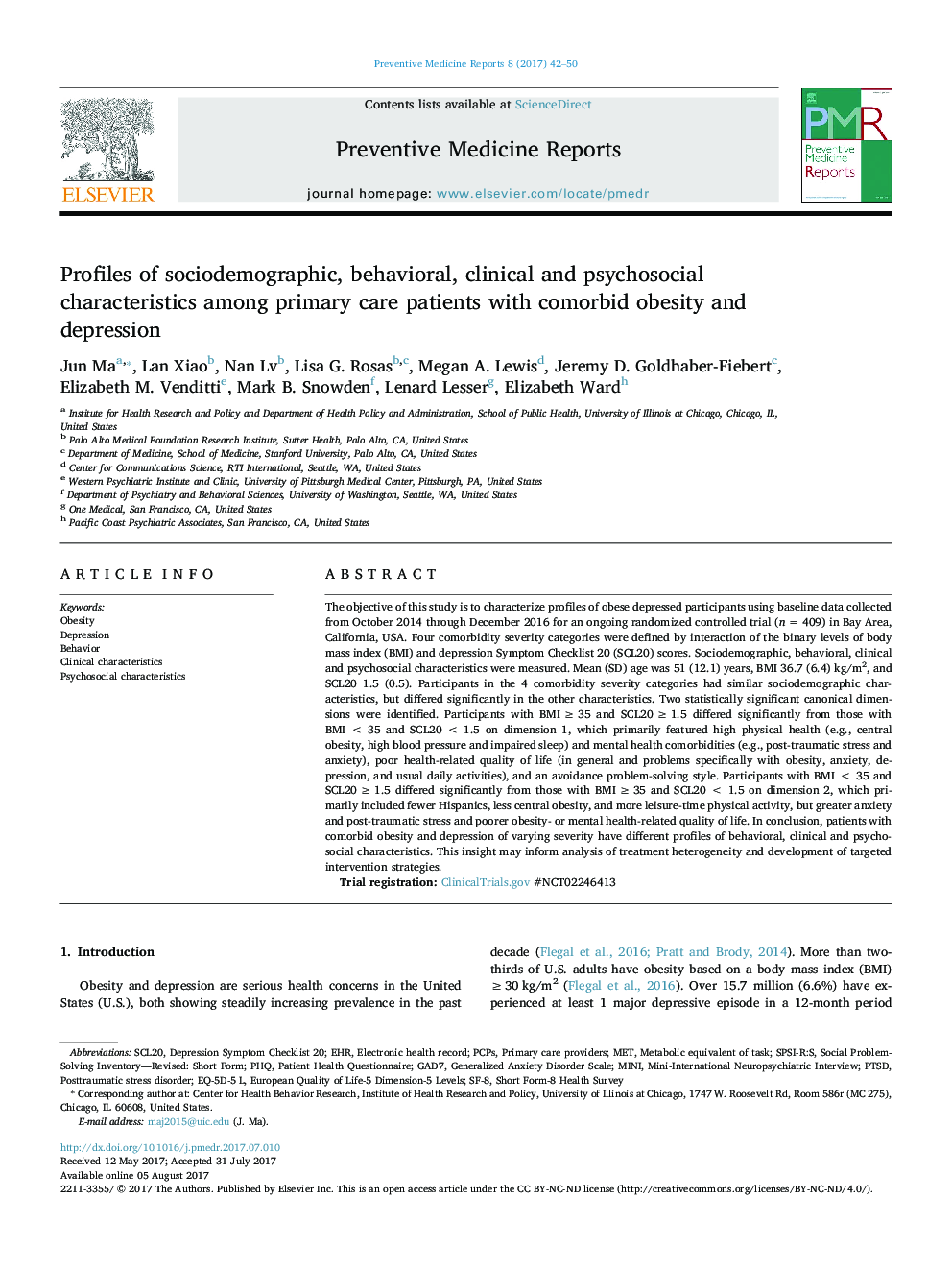| کد مقاله | کد نشریه | سال انتشار | مقاله انگلیسی | نسخه تمام متن |
|---|---|---|---|---|
| 5723607 | 1609084 | 2017 | 9 صفحه PDF | دانلود رایگان |
- Patients with obesity and depression of varying severity have different behavioral, clinical and psychosocial profiles.
- The highest vs lowest severity type had more comorbidities, poorer quality of life and an avoidance problem-solving style.
- The depression vs obesity dominant type had more exercise, but more mental health comorbidities and poorer quality of life.
- The insights gained may inform analysis of treatment heterogeneity and development of targeted intervention strategies.
The objective of this study is to characterize profiles of obese depressed participants using baseline data collected from October 2014 through December 2016 for an ongoing randomized controlled trial (n = 409) in Bay Area, California, USA. Four comorbidity severity categories were defined by interaction of the binary levels of body mass index (BMI) and depression Symptom Checklist 20 (SCL20) scores. Sociodemographic, behavioral, clinical and psychosocial characteristics were measured. Mean (SD) age was 51 (12.1) years, BMI 36.7 (6.4) kg/m2, and SCL20 1.5 (0.5). Participants in the 4 comorbidity severity categories had similar sociodemographic characteristics, but differed significantly in the other characteristics. Two statistically significant canonical dimensions were identified. Participants with BMI â¥Â 35 and SCL20 â¥Â 1.5 differed significantly from those with BMI < 35 and SCL20 < 1.5 on dimension 1, which primarily featured high physical health (e.g., central obesity, high blood pressure and impaired sleep) and mental health comorbidities (e.g., post-traumatic stress and anxiety), poor health-related quality of life (in general and problems specifically with obesity, anxiety, depression, and usual daily activities), and an avoidance problem-solving style. Participants with BMI < 35 and SCL20 â¥Â 1.5 differed significantly from those with BMI â¥Â 35 and SCL20 < 1.5 on dimension 2, which primarily included fewer Hispanics, less central obesity, and more leisure-time physical activity, but greater anxiety and post-traumatic stress and poorer obesity- or mental health-related quality of life. In conclusion, patients with comorbid obesity and depression of varying severity have different profiles of behavioral, clinical and psychosocial characteristics. This insight may inform analysis of treatment heterogeneity and development of targeted intervention strategies.Trial registration: ClinicalTrials.gov #NCT02246413
Journal: Preventive Medicine Reports - Volume 8, December 2017, Pages 42-50
